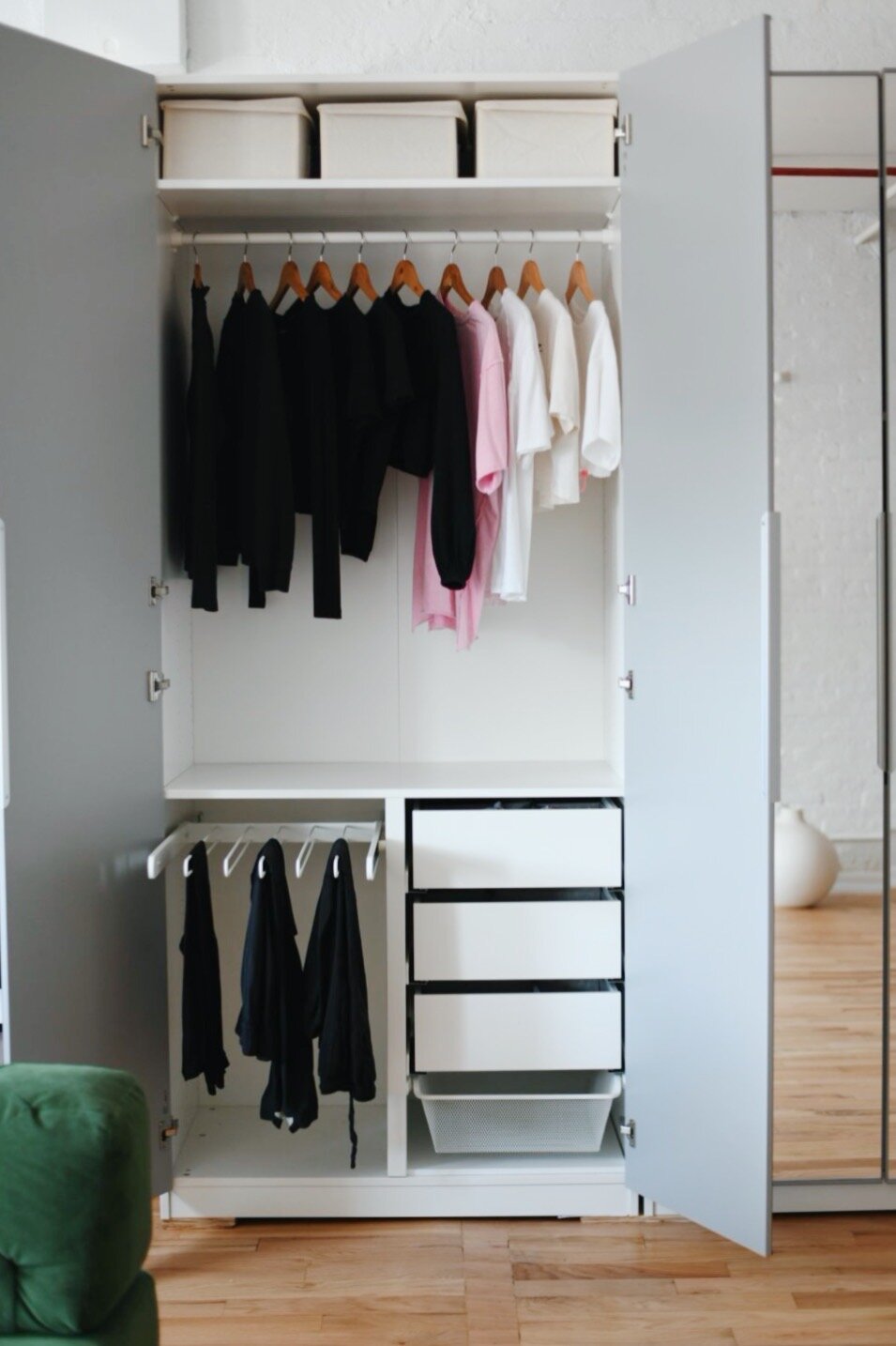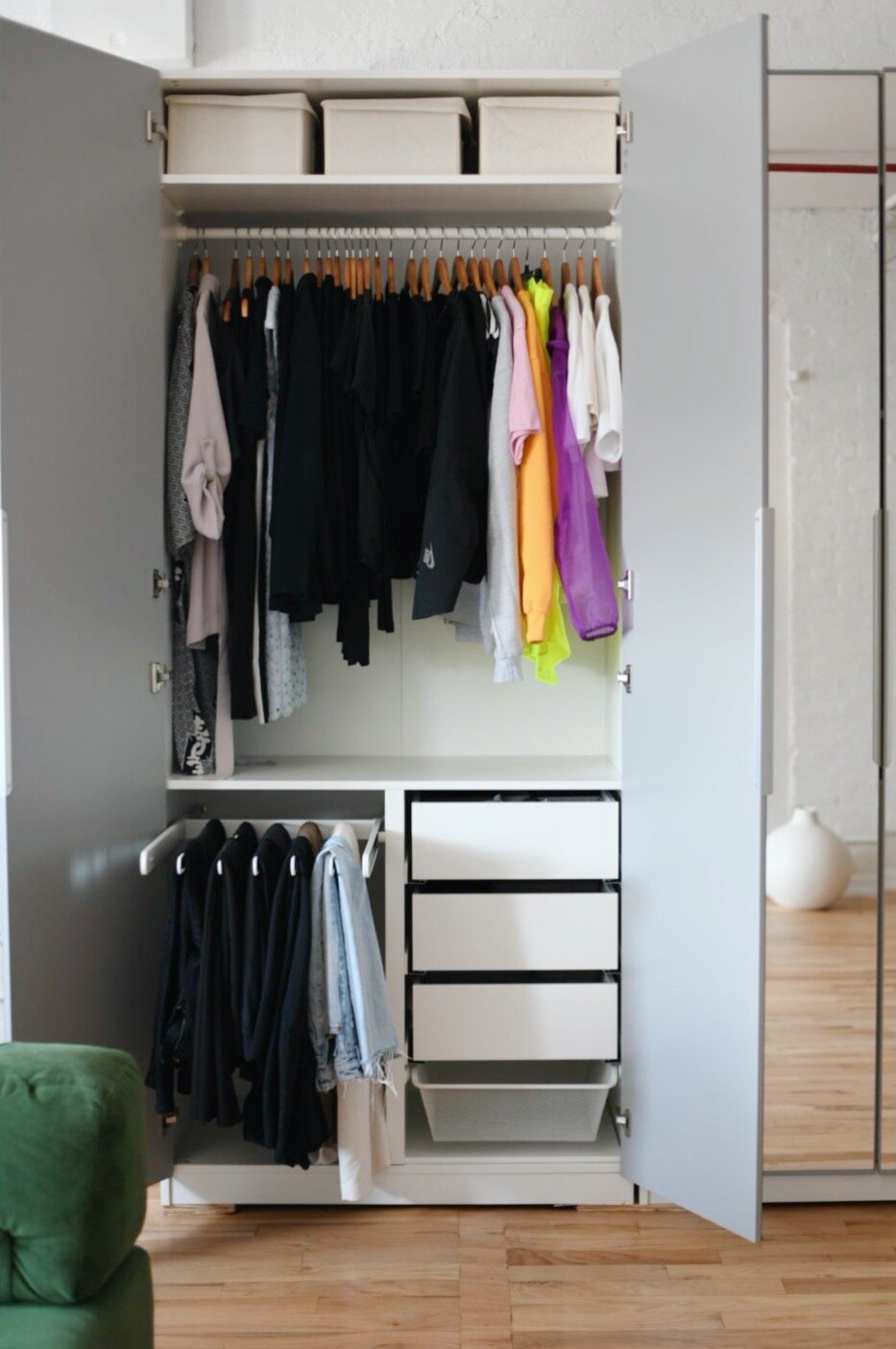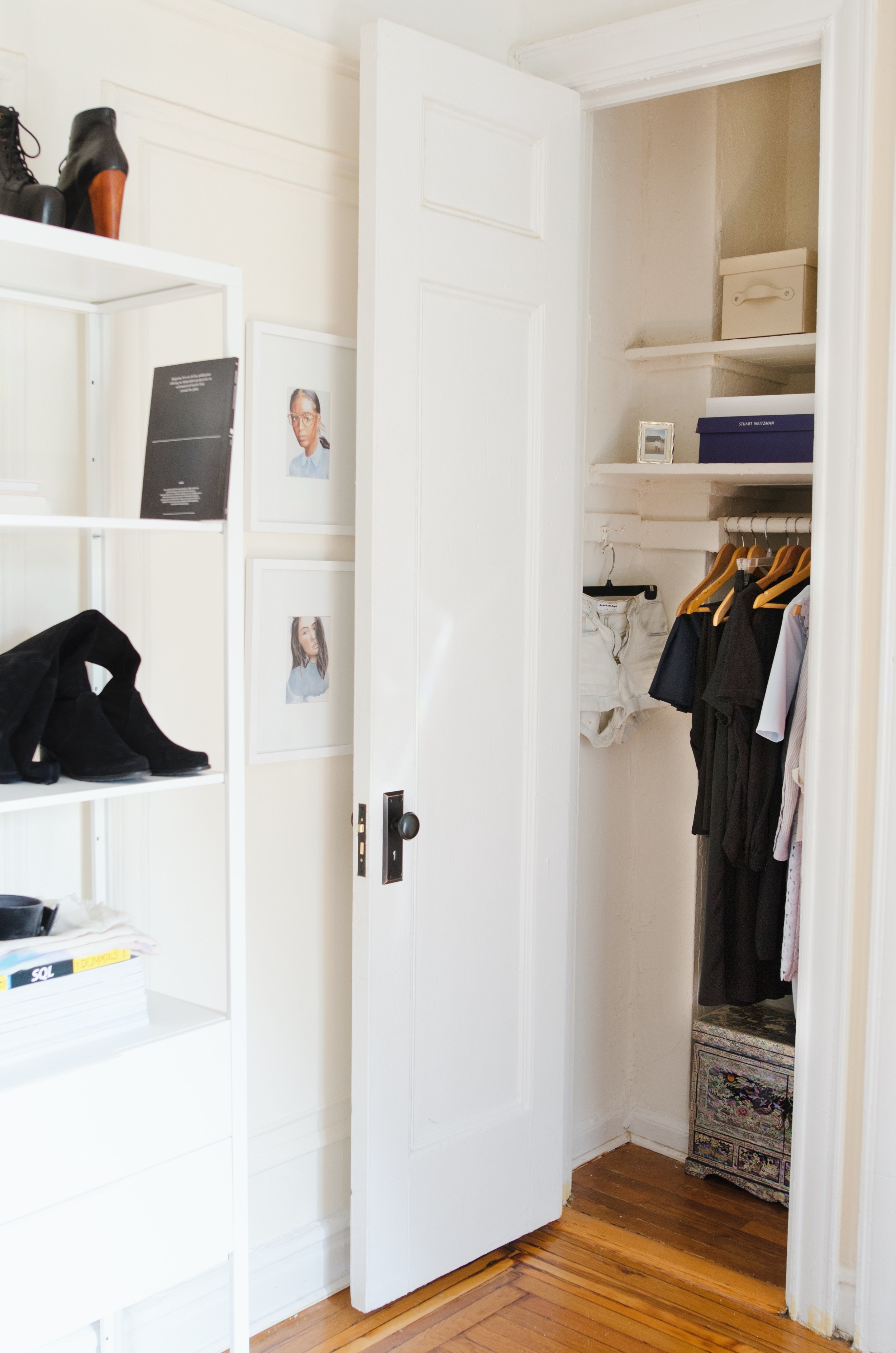This hat isn’t necessary in the city (for me at least), but most wardrobes have pieces that are considered a “Specialty” and used for unique situations. For me, most of my “Specialty” pieces are used for hiking and outdoor work such as tactical boots, overalls and now…this hat!
When I do add a new “Specialty” piece to my wardrobe, I pick one that fits with my colors and general style.
How to create more outfits with less
The easiest place to start when shifting to a minimal wardrobe is to examine the “versatility” of each piece. Most of us have about five uniforms we need. Disclosure: You may have more, less, or different than mine, which are:
The process of "6 Uniforms in pop culture"
When most people hear the term “personal uniform” they imagine wearing the same outfit every day. But if you tend to wear the same color palette, silhouette and clothing style every day, you are actually wearing a personal uniform, even though the outfits are slightly different. To see how this works, just take a look at how costume designers often dress TV characters in their own personal uniforms.
You can check out the final story I created on my instagram here.
Wardrobe habits: What happens when I don't leave my apartment like I used to
How much of your clothing do you think you would wear if you spent over four months in your house?
When quarantine began, I kept my routine as normal as possible. But, as the months go on, I stay up later, wake up later, and work longer. Most days, it feels like I have a uniform.
This is a look at my clothing worn and habits during COVID-19.
Quarterly Capsule Wardrobe Analysis Dashboard Featuring NPS
At the end of each quarter, I complete an in-depth analysis of my capsule wardrobe. I’ve found this to be a helpful way to evaluate each piece to determine if it needs some TLC or if it even belongs in my closet anymore. Additionally, it’s a good way to identify trends and provide more insight into my habits and personal style evolution. This is the first time I’ve built data visualizations to review this data and also the first time I’ve used Net Promoter Score in this way.
Cost-Per-Wear (CPW) Analysis
Now that we're over half way through the year, I now have enough data to start investigating deeper questions about my wardrobe. In the past two years I've invested in more expensive items, which is why I created today's visualization to easily view the cost-per-wear (CPW) of each piece.
It's not a perfect calculation because the number of wears is year-to-date only, meaning any wears before January 1, 2018 are not included. As I continue to track what I buy, wear, and retire, the CPW will become more accurate.
Test out the visualization by selecting a piece from my capsule wardrobe through the filter on the right.
Where was my capsule wardrobe made?
This is a quick visualization I made last year, but recently updated with current data to show at a glance where my capsule wardrobe was made.
My Capsule Wardrobe Dashboard
This is my first version of my capsule wardrobe dashboard featuring metrics I'm interested in tracking. It is currently updated at the end of each month and all metrics are year to date.
What I wore in February - Wardrobe Science
Post-Valentine's Day Dinner, Manhattan
Monthly Summary:
59% of the clothing in my wardrobe was worn this month (-3% from previous month)
5 pieces were purchased (+25% from previous month)
3 pieces were retired (+100%) and lasted an average of 2.5 years before retirement
77% of clothing worn was black, excluding outerwear (-5%)
52% of my outfits were rated a 5/5 by me with a spike occurring after I purchased 4 new pieces (+6%)
What I wore in January - Wardrobe Science
Summary:
61% of the clothing in my wardrobe was worn this month
56% of my outfits were worn to work
If you exclude outerwear, I wore black 81% of the month
I rated 49% of my outfits a 5 out of 5
Click the images to view a summary of what I wore during January.
What is a Capsule Wardrobe?
A Capsule Wardrobe is any collection of clothing curated for style and quality to maximize the number of outfits you can create using a minimal amount of pieces.
There are 3 components that define a Capsule Wardrobe:
Defined Personal Style: Your clothes express you. Colors, silhouettes and material are all expressions of individuality. You can even express ideology. Whether that’s through something as brazen as a giant patch or something subtle like only buying from ethical vendors; it's completely up to you.
Dedication to Quality: You should invest in pieces based on the quality of the product. Pay close attention to details like material, stitching, seams, linings, button holes, and zippers.
Minimalism: Keep and acquire only pieces that meet your wardrobe needs.


